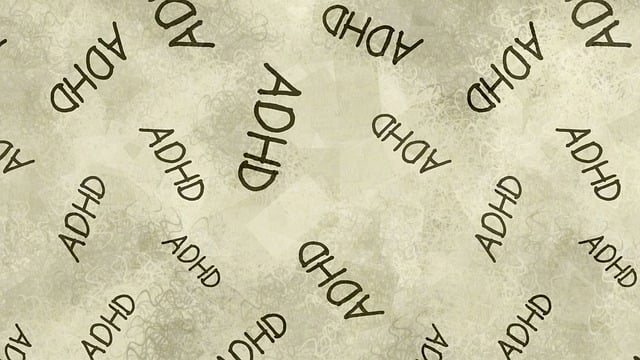Mental health professionals at Highlands Ranch Child Abuse Therapy face unique challenges treating clients with diverse cultural backgrounds and complex trauma histories. Effective risk management involves identifying individual circumstances, implementing tailored interventions, and providing cultural competency training. This proactive approach creates safer environments and improves outcomes for all clients. Through community outreach, regular policy analysis, and continuous monitoring of performance indicators, the team navigates potential risks while promoting emotional well-being and fostering open communication.
Mental health professionals, especially those specializing in child abuse therapy, face unique challenges. Effective risk management planning is crucial for safeguarding clients and practitioners alike. This article explores the critical components of such strategies. We delve into understanding diverse risks within mental health practice, focusing on identifying and assessing specific threats pertinent to child abuse therapy at Highlands Ranch Child Abuse Therapy. Additionally, we provide a step-by-step guide to developing, implementing, and monitoring robust risk management plans.
- Understanding Risk in Mental Health Practice
- Identifying and Assessing Risks Specific to Child Abuse Therapy
- Developing a Comprehensive Risk Management Plan
- Implementing and Monitoring the Plan at Highlands Ranch Child Abuse Therapy
Understanding Risk in Mental Health Practice

Mental health professionals are constantly navigating complex situations, making them inherently exposed to various risks. Understanding risk in this context goes beyond identifying potential hazards; it involves recognizing the unique challenges inherent in treating vulnerable populations. Every client brings their own intricate set of circumstances, including past traumas, cultural backgrounds, and personal beliefs, which can significantly impact therapy outcomes. For instance, a case of child abuse in Highlands Ranch may reveal underlying issues that require specialized interventions, such as Mindfulness Meditation techniques to foster emotional regulation or Empathy Building Strategies to strengthen therapeutic alliances.
Healthcare providers must be adept at assessing these risks and implementing strategies to mitigate potential harms. This includes undergoing Healthcare Provider Cultural Competency Training to effectively address diverse client needs. By embracing a proactive approach, mental health professionals can create safer, more inclusive environments, ensuring the best possible care for all individuals they serve, regardless of their background or presentation.
Identifying and Assessing Risks Specific to Child Abuse Therapy

Identifying risks is a crucial step in risk management planning for mental health professionals, especially when specializing in child abuse therapy in Highlands Ranch. This process involves a meticulous assessment of various factors unique to this field. Therapists must be vigilant in recognizing potential hazards that may arise during treatment sessions with children who have experienced trauma. For instance, triggering events or memories can lead to acute anxiety or even flashbacks, requiring immediate intervention.
The process also encompasses considering cultural sensitivity in mental healthcare practice and the impact of community outreach program implementation. Understanding the diverse backgrounds of clients is essential as cultural beliefs and practices can influence how individuals perceive and express trauma. Additionally, Trauma Support Services play a pivotal role in mitigating risks by providing specialized resources to ensure the well-being of both clients and therapists during the therapeutic journey.
Developing a Comprehensive Risk Management Plan

Developing a comprehensive risk management plan is an essential step for mental health professionals to ensure a safe and supportive environment for their clients. This process involves identifying potential risks, hazards, and challenges that may arise in the course of therapy sessions or interactions with patients. At Highlands Ranch Child Abuse Therapy, for instance, understanding the unique needs and backgrounds of each child is paramount. A robust risk management strategy includes assessing cultural competencies through Healthcare Provider Cultural Competency Training to address diverse family dynamics and personal beliefs.
By integrating Positive Thinking practices into their approach, therapists can create a nurturing atmosphere that promotes open communication. Additionally, regular Mental Health Policy Analysis and Advocacy ensures compliance with relevant regulations and guidelines, fostering a secure practice setting. This proactive measure allows professionals to anticipate and mitigate risks effectively, ultimately enhancing the quality of care provided.
Implementing and Monitoring the Plan at Highlands Ranch Child Abuse Therapy

At Highlands Ranch Child Abuse Therapy, implementing and monitoring a robust risk management plan is paramount to ensuring the emotional well-being promotion techniques used by professionals are effective and safe. This involves regular reviews of existing protocols, with a focus on inner strength development and self-esteem improvement strategies for both staff and clients. By fostering an environment that prioritizes resilience and open communication, the team at Highlands Ranch Child Abuse Therapy is better equipped to navigate potential risks, thereby enhancing service delivery and client outcomes.
Monitoring includes tracking key performance indicators related to risk management, such as client satisfaction rates, incident reports, and staff training completion. This proactive approach allows for swift adjustments to the plan, ensuring that evidence-based practices are consistently applied. Through continuous evaluation, Highlands Ranch Child Abuse Therapy remains at the forefront of mental health care, emphasizing both individual growth and collective well-being within their community.
Risk management planning is an indispensable practice for mental health professionals, especially those working with vulnerable populations like children in therapy. As highlighted through this article’s exploration of Highlands Ranch Child Abuse Therapy, a comprehensive risk management plan involves identifying specific risks, assessing their potential impact, and implementing strategies to mitigate these risks effectively. By adopting such measures, therapists can create a safer environment, protect clients, and maintain the integrity of their practice, ensuring that every individual receives quality care in a secure setting.














